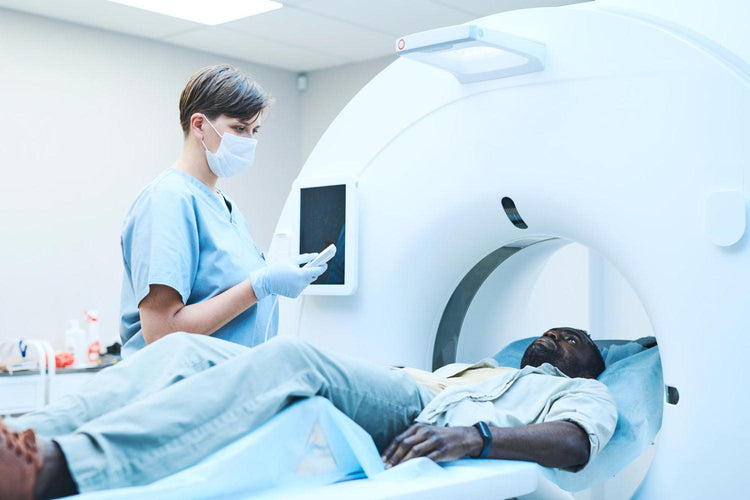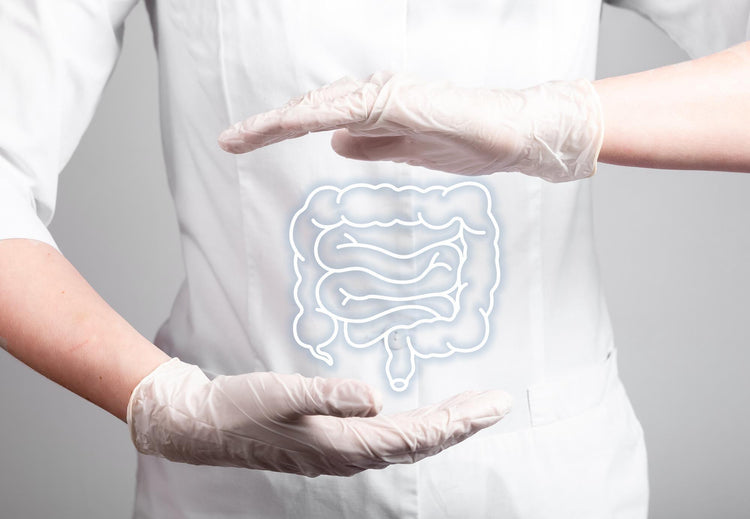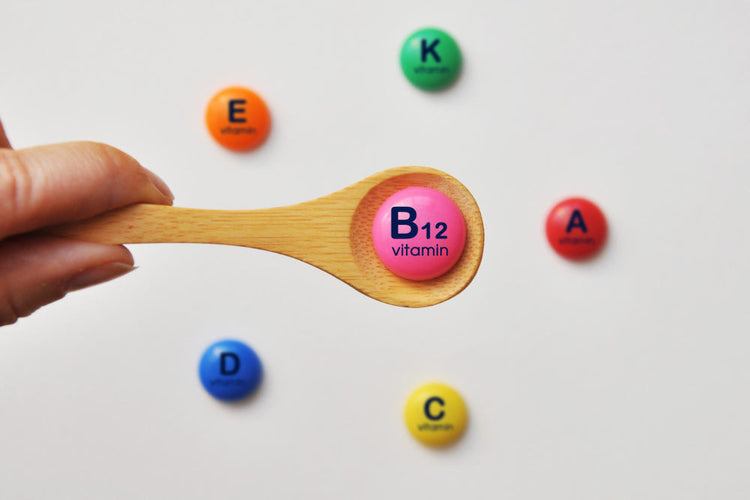Is frequent diarrhoea a sign of cancer?


Related products
What’s covered?
Is frequent diarrhoea a sign of cancer?
Diarrhoea is a common symptom that can be caused by a variety of factors, including infections, food sensitivities, and medical conditions. Cancer can sometimes cause diarrhea, but it is not a very common symptom of cancer. If you are experiencing frequent diarrhea, it is important to speak with a healthcare professional to determine the cause and receive appropriate treatment. They will be able to assess your overall health and consider any other symptoms you may be experiencing in order to determine the cause of your diarrhea and provide the appropriate treatment.
Some kinds of cancer could be indicated by diarrhoea. Bowel cancer, colorectal cancer, lymphoma, medullary carcinoma of the thyroid gland, neuroendocrine tumours, and pancreatic cancer.
The video below describes the links between bowel changes, cancer and diarrhoea.
Cancer-related causes of diarrhoea and how to cope with it
Diarrhoea is a very painful, but very painful, health condition which affects anyone. Usually when a child's digestive tract moves freely, loosely or irritated, diarrhoea occurs. Diarrhoea is commonly associated with some of the side effects associated with cancer treatment, as well as indicating a larger issue. Frequent diarrhoea may even signify cancer.
What is cancer?
Before we can talk about cancer symptoms, it may be helpful to understand what cancer is.
Unlike most other diseases, neither viruses nor bacteria cause cancer. Instead, problems with our bodies' cells cause it.
When a cell becomes a cancer cell, it will lose the ability to self-destruct (that cells naturally have) and multiply uncontrollably. As a result, cancer kills people when it grows into vital organs.
There are many different types of cancer, and only some of them are likely to result in diarrhoea.
Types of cancer that may have diarrhoea as a symptom
Not all types of cancer result in diarrhoea. For example, cancer in the breast is unlikely to have much impact at all on your bowel movements.
Generally, the types of cancer that are most likely to result in diarrhoea are the types that originate in the colon, thyroid, or other body parts that affect our faecal matter.
Types of cancer where diarrhoea is a symptom include colorectal cancer, lymphoma, medullary carcinoma of the thyroid gland, neuroendocrine tumours, and pancreatic cancer.
Later in this article, we'll detail these kinds of cancers and why they may result in diarrhoea.
What does diarrhoea from a cancer patient look like?
One type of cancer that often causes diarrhoea is bowel cancer. However, faecal matter from bowel cancer patients doesn't present like ordinary diarrhoea.
Often, it can be dark red or even black!
However, that's just one type of cancer. Most other types of cancer that cause diarrhoea create faecal matter that might look indistinguishable from the diarrhoea of someone without cancer.
So, please do not think it automatically means you have cancer because you have diarrhoea.
More common causes of diarrhoea
If you've clicked on this article because you are experiencing diarrhoea and are worried that you might have cancer, I would advise you to talk to your doctor and figure out if your diarrhoea has another cause.
Pathogens (viruses and bacteria) can often cause diarrhoea. This is because our body recognises that something inside it shouldn't be there and does everything possible to get rid of it. It's a bit like how you might turn on the shower to get the spider out of the tub.
A bad diet can also cause it. Some foods pass through our digestive system so quickly that our bodies don't have time to turn our faeces solid before expelling them.
Colorectal Cancer
The first type of cancer I want to talk about is colorectal cancer.
As the name may suggest, this type of cancer starts in the colon or the rectum. From there, the cancer cells grow wildly out of control.
Located near your colorectal system, you have "lymph nodes". Their job is to filter out substances that travel through your blood- which helps you fight disease. With your lymph nodes not working (because cancer cells have grown into them), your body will just try to expel any infections.
Lymphoma
Lymphoma is a type of cancer that has similar effects on your faecal expulsion system.
Although there are multiple types of lymphoma, the two main types are known as Hodgkin and non-Hodgkin. Both types often lead to diarrhoea.
Lymphoma is a general term for any type of cancer that begins in the lymphatic system. As we mentioned in the previous section, lymph nodes filter out toxins from the blood. If they cannot do this, the body will have no choice but to expel any toxins, resulting in diarrhoea.
Medullary carcinoma of the thyroid gland
I know that "Medullary carcinoma of the thyroid gland" doesn't roll off the tongue too easily. However, it's essentially any cancer that starts in the thyroid gland.
The thyroid is a gland located at the back of the neck. If you've ever wondered why some people eat lots but are still skinny, but others always put on weight no matter how little they eat, the thyroid gland is often crucial.
However, when cancer cells infect the thyroid gland, they can't regulate metabolism properly and may cause it to speed up. As a result, the body expels food before it's processed correctly.
Neuroendocrine tumours
Neuroendocrine tumours are a type of cancer that starts in Neuroendocrine cells.
We know these aren't cells you would regularly learn about in a biology class. However, their function is similar to nerve cells.
They release message molecules (in the form of hormones) into the blood. However, if they are infected with tumours, they may release hormones differently from how they should be.
The immune system interprets these new hormones as a threat. So it does what it can to expel them—often, discharging them results in diarrhoea.
Pancreatic Cancer
Finally, we have pancreatic cancer.
The pancreas is another gland that helps our body. It's located just between the spine and the stomach.
The pancreas' job is to create enzymes that break down sugars, fats, and starches. That's why it's located so near to the stomach.
It also creates digestive hormones that help us digest the food we eat.
However, should the pancreas be impacted by cancer cells, our intestine will struggle to absorb the nutrients from food. This results in the body expelling more.
Summary
In short, some types of cancer often result in diarrhoea for various reasons. However, this is not to say that everyone with diarrhoea has cancer. Nor is it to say that everyone with cancer has diarrhoea.
If your diarrhoea lasts longer than a few days, that may indicate something is wrong, and you should talk to your doctor.
We hope this article has covered everything you've wanted to know about the relationship between diarrhoea and cancer.
If you want to learn more about the causes, symptoms or treatments for diarrhoea, see our information page here.
For a full range of blood tests and medications, visit our Welzo Online Pharmacy Page. For more details, click here.











 Rated Excellent by 26,523+ Reviews
Rated Excellent by 26,523+ Reviews